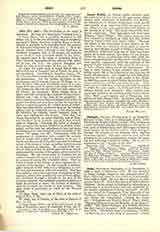

Jenks, SILVESTER, theologian, b. in Shropshire, c. 1656; d. early in December, 1714. He was educated at Douai College, where he was ordained priest September 23, 1684, and where he was professor of philosophy from 1680 to 1686. He was later a preacher in ordinary to James II. At the Revolution of 1688 he fled to Flanders. On his return to England he labored as a missionary in or near London and was appointed by the chapter Archdeacon of Surrey and Kent. In 1711 he was elected by Propaganda Vicar Apostolic of the Northern District (August 13, 1713), but died of paralysis before his consecration. Among his works are: “A Contrite and Humble Heart” (Paris, 1692); “Practical Discourses on the Morality of the Gospel” (1699); “The Blind Obedience of a Humble Penitent the Best Cure for Scruples” (1699, republished, London, 1872); “The Whole Duty of a Christian” (1707); “A Short Review of the Book of Jansenius” (1710). A portrait engraved by le Pouter in 1694 is prefixed to a Paris edition of “A Contrite and Humble Heart”.
EDWIN BURTON

